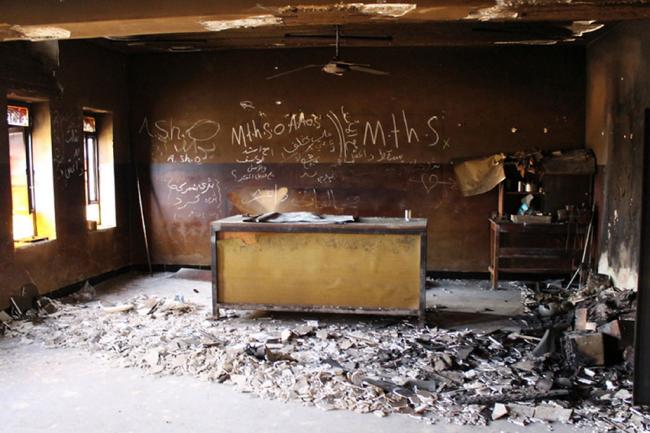
'They are our strongest allies,' UN political chief says, urging efforts to engage terrorism victims
Delivering a keynote address at an event organized by the UN Counter-Terrorism Centre (UNCCT), Under-Secretary General for Political Affairs Jeffrey Feltman said that terrorism victims could bring a perspective that shapes the debate, counters hateful narrative and influences attitudes that can help in reaching out to marginalized and at-risk communities.
“They are our allies,” the UN political chief stressed. “Member States, the United Nations and the entire international community have the privilege and responsibility to work with them to save succeeding generations from similar suffering.”
Calling on participants in the conference to create momentum for change in addressing victims' needs in criminal justice processes, with appropriate confidentiality and witness protection measures in place and through establishing multidimensional responses to reparations, Feltman also said it is critical for the international community to take a holistic approach to combatting terrorism, by acting earlier and being more inclusive.
“With their courage and commitment to saving others from experiencing the same suffering, victims of terrorism are the strongest, most sincere and most convincing allies we have in preventing others from being lured to terrorist and violent extremist groups,” he said.
Noting that many victims have shown that they want to be engaged, Feltman emphasized that more must be done to “help them to help us” in devising responses to narratives and thus preventing terrorist and violent extremist groups from attracting additional followers.
“If the unspeakable horrors and false promises of these groups are exposed by those who sadly have first-hand experience, potential followers will be able to draw informed conclusions. And thereby the sorrow and suffering victims endured will serve the common good and hopefully also contribute to their own healing,” he said.
Specifically, Feltman emphasized that the existing legal framework relating to victims of terrorism must take into account their specific needs and be strengthened, as should national mechanisms that assist victims with the appropriate medical, psychological and legal services.
The conference, which brings together government representatives and experts from academia, civil society, international and regional organizations as well as victims' associations, aims to raise awareness on the rights of victims of terrorism and examine how States can strengthen their national legislation, procedures and practices to better protect and support victims, their communities and their families.
The conference was organized under the auspices of the Counter-Terrorism Implementation Task Force (CTITF) Working Group on Supporting and Highlighting Victims of Terrorism and in collaboration with the Special Rapporteur on the promotion and protection of human rights and fundamental freedoms while countering terrorism, Ben Emmerson.
The UNCCT was established in 2011 to provide capacity building for UN Member States and regional organizations to support the implementation of all four pillars of the UN Global Counter-Terrorism Strategy.
In January, UN Secretary-General Ban Ki-moon presented a new strategy – the Plan of Action to Prevent Violent Extremism – in which he called for a comprehensive approach encompassing not only essential security-based counter-terrorism measures but also systematic preventive steps to address the underlying conditions that drive individuals to radicalize and join violent extremist groups.
UNICEF/UNI199916/Jemelikova
Support Our Journalism
We cannot do without you.. your contribution supports unbiased journalism
IBNS is not driven by any ism- not wokeism, not racism, not skewed secularism, not hyper right-wing or left liberal ideals, nor by any hardline religious beliefs or hyper nationalism. We want to serve you good old objective news, as they are. We do not judge or preach. We let people decide for themselves. We only try to present factual and well-sourced news.







